-
Reasons to Improve Your Company’s Waste Management System
From recycling programs to waste audits, there are many strategies for cutting down on what your company tosses into its dumpsters in Atlanta, and there are several good reasons for you to improve your company’s waste management system .
The most obvious reason to make smart changes in the way your business manages and disposes of waste is that doing so can save you money. Additionally, by conducting a waste audit to learn what is filling your dumpsters, you can discover what types of waste and how much of each your company is producing, allowing you to make strategic changes. Also, better waste management practices mean that your company’s operations can have less of a detrimental impact on the environment, for example, by using fewer resources and producing fewer greenhouse gas emissions. Finally, making your business more environmentally friendly in this way allows you to create a greener image for your business that both your staff and customers can appreciate.

-
How Your Leftovers Can Be Converted into Fuel
Are you interested in taking advantage of the benefits of organic food recycling near Atlanta , but you wonder what happens when your leftovers go into a food recycling bin instead of the dumpster? If so, then watch this video to discover how food can be converted into fuel.
When food waste is placed in an anaerobic digestion waste management system, it can be converted into a gas called methane, which can be harnessed and then used for fuel by power plants. To make the food recycling process more efficient and versatile, companies are researching ways of converting food waste into ethanol, which is a more useful form of energy than methane, and scientists are working on new methods using food waste and other resources to create energy.
-
A Brief Guide to Greenhouse Gases
Did you know that recycling everything from food to electronics can help reduce greenhouse gas emissions? While recycling technology and waste disposal practices continue to improve, many people aren’t aware of the ways that waste management can affect the environment. If you’re interested in embracing better waste management in Atlanta and want to know more about its effect on the environment, then keep reading for a quick overview of greenhouse gases.
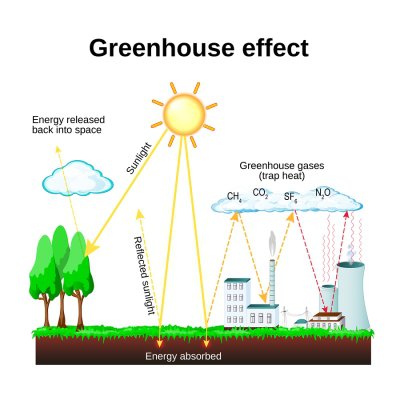
What Greenhouse Gases Are
Any gas that causes heat to be trapped in the earth’s atmosphere is referred to as a greenhouse gas. Some of the most prevalent greenhouse gases include carbon dioxide, nitrous oxide, and fluorinated gases. The greater the rate of emissions for a particular greenhouse gas, the higher its concentration will be in the atmosphere. Different gases remain in the atmosphere for different lengths of time, and the warming effects of various gases can differ.
Where Greenhouse Gases Come From
According to the U.S. Environmental Protection Agency , some of the economic activities that most contribute to the production of greenhouse gases are transportation, electricity production, industry, and agriculture. Also, most of these greenhouse gas emissions are in the form of carbon dioxide, followed by lesser amounts of methane, nitrous oxide, and fluorinated gases.
Why Greenhouse Gases Matter
Climate change is a natural phenomenon, but the greenhouse gases produced by human activity may drive global warming in an unnatural way. Through activities like raising livestock, driving cars, using energy, and managing waste poorly, human activity can produce greenhouse gases that may promote global warming.
What You Can Do
While climate change is a global issue, there is plenty that you can do in your day-to-day life to help minimize your contribution to greenhouse gas emissions. Some examples include recycling, reducing and reusing, choosing energy-efficient home appliances, switching to LED light bulbs, carpooling, and buying products that have less packaging. Other ways to do your part include driving an electric hybrid vehicle, telecommuting to work, and turning the thermostat up or down by a few degrees when you go to sleep or leave the house for the day.
-
Highlighting the Cost Saving Benefits of Using Waste Analytics
Did you know that something called waste analytics could improve the efficiency of your company’s waste management near Atlanta? Whether you want to save money on trash pick-ups, find ways to reduce waste, or enhance your business’ green image, waste analytics can help.
Waste analytics refers to data about waste generation, and this information can help you understand how your company impacts the environment and what your options are for making improvements. For example, by having concrete information about how much waste is produced, you will be in a better position to determine areas for improvement. Also, knowing what type of waste your business generates can help you decide if you would benefit from a commercial recycling program and, if so, what kind. Finally, by having a better idea of how much waste your company generates in a specific period, you can avoid scheduling trash pick-ups more frequently than you need them. For these reasons, there is a good chance that your business could benefit from waste analytics.
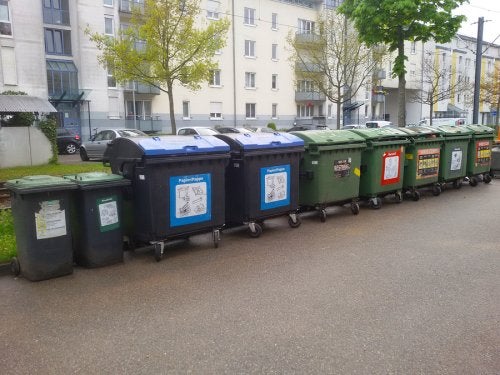
-
Spotlight on Single Stream Recycling
Today, many businesses are choosing to go green by beginning recycling initiatives. If you’re planning to start a company program for recycling in Atlanta , then you can benefit from understanding one of your potential options, called single stream recycling.
Any recycling system in which all recyclable materials are collected in a single bin is referred to as single stream recycling. This option differs from other methods of collecting recyclables that use separate bins for different types of materials, for example aluminum, glass, and plastic. When it comes to beginning a recycling program for your company, the single stream method offers several advantages. First, single stream means that you won’t need as many recycling bins in your building. Second, it simplifies the process for your employees because instead of having to determine which of several bins their waste needs to go in, they only need to decide whether it is trash or recyclable. Finally, single stream recycling can save time, as there is no need to separate different types of recyclable materials from one another.
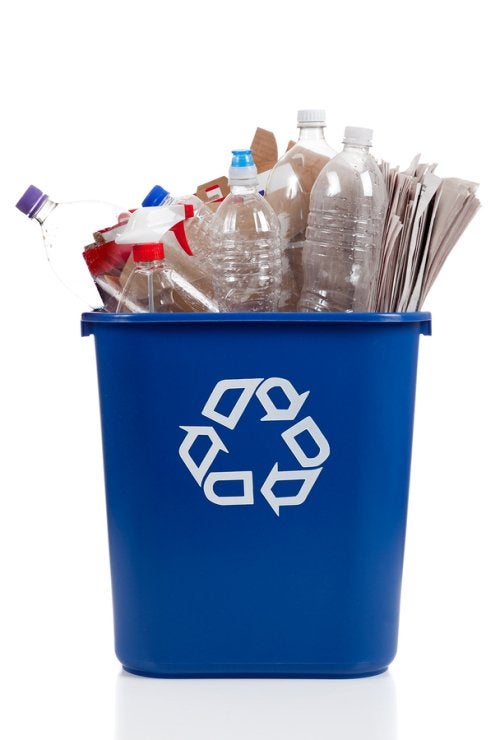
-
Taking a Closer Look at Non-Ferrous Material Recycling
Metal recycling benefits the environment and can also help your company save money. If you’re a business owner interested in taking advantage of industrial recycling in Atlanta , then keep reading to learn some of the facts you should know about non-ferrous metal recycling.
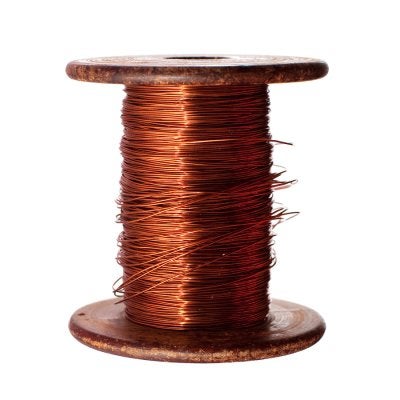
The Characteristics of Non-Ferrous Metals
Non-ferrous refers to any metals other than ferrous metals. Ferrous metals are metals and metal alloys that contain iron, for example, carbon steel and cast iron. Common non-ferrous metals include copper, zinc, tin, aluminum, nickel, and lead. However, precious metals like gold and silver are also non-ferrous. There is a broad range of consumer and commercial goods that contain recyclable non-ferrous metals, such as soda cans, electronic circuitry, car radiators, and airplane components. Non-ferrous metals are more malleable and resistant to corrosion and rust than ferrous ones, and they are also more lightweight, which makes them good options for products that require strength but for which weight is a concern. Lastly, non-ferrous metals are non-magnetic, which is why they are used for wiring and electronic circuitry.
The Recycling of Non-Ferrous Metals
Non-ferrous metals are particularly valuable when it comes to recycling because these materials do not break down or lose their properties during the process. These characteristics mean that non-ferrous metals can be recycled infinitely without losing their physical or chemical attributes. Although non-ferrous metals make up a relatively small portion of all metal that is recycled in the U.S., what is recycled accounts for a significant amount of metal recycling profits. Non-ferrous metal materials that are collected for recycling are transported to industrial consumers, such as refiners, foundries, and smelters, providing these entities with affordable and eco-friendly access to valuable non-ferrous scrap. These industrial consumers process the scrap metal, which is an energy-efficient alternative to processing raw ore, to create new products and begin the material’s life cycle anew. If your business produces non-ferrous scrap metal, then you might benefit from metal recycling services.
-
Could Waste Be the Newest Source of Energy?
If you’re like many people who are concerned about cutting back on waste near Atlanta , then you may be interested in learning what one city is doing to make the most of the trash it generates. Watch this video to get an introduction to something called waste-to-energy.
The local government in Alexandria, Virginia partnered with an energy corporation to power more than 20,000 homes with a process called waste-to-energy. Despite recycling efforts, there is still a lot of waste that ends up in dumpsters. This process allows the area to burn their garbage for energy, rather than dump it in a landfill. Through innovation, they have stayed ahead of EPA regulations over the years, for example with new filtration technology for their furnaces, making this waste management process a promising one.
-
Advice for Restaurants Who Want to Cut Waste
When it comes to maximizing the profits for your business, efficient waste management is critical. If you are a restaurant owner who wants to cut down on waste in Atlanta, then keep reading for some advice on getting started.
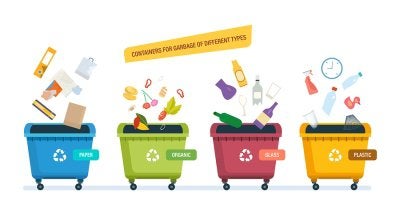
Get an Audit
Waste analytics, or data regarding waste, can be invaluable when it comes to cutting down on the amount of trash that ends up in your restaurant’s dumpsters. For this reason, one of the first steps you should take to reduce waste is to schedule an audit. You can go through the auditing process yourself or hire a company to come in and evaluate your establishment for you. The results of the audit will give you a better idea of how much waste your restaurant is creating, what types of waste it’s generating, and what your greatest areas for improvement are.
Start Recycling Programs
Following the waste audit, you may find that more recyclable materials end up in your garbage than you would have guessed. To help reduce your establishment’s overall waste, consider starting some recycling programs. For example, you can begin food recycling so that your food scraps can be transformed into compost and animal feed, and you can place recycling bins in a few areas of your restaurant so that materials like paper, plastic, and aluminum can make their way to a recycling plant instead of a landfill.
Examine Purchasing Habits
While it’s important to address what you do with the waste that’s produced, don’t forget to consider if too much product is being brought into your restaurant, as well as how your employees are using ingredients and materials. Take a close look at your purchasing habits to learn if there are areas where you can cut back or convert to recyclable materials. Finally, investigate how products are being used in your restaurant. You may find that materials are being utilized inefficiently or that you can cut back on waste by using 1 ingredient where you currently use 3 similar ones.
-
Taking a Closer Look at Ferrous Waste Recycling
Ferrous waste is a term that is used to describe any type of scrap that is primarily composed of iron or steel. If your business produces large amounts of ferrous waste, consider bringing your items to a facility that offers scrap metal recycling in Atlanta . Metal recycling can be used to repurpose ferrous waste and create brand new items. Your recycling center can even help you to create a waste management plan that provides you with scheduled pickups for your bulk ferrous waste. To help you implement a recycling plan for your business, read on to take a closer look at what you need to know about ferrous waste recycling.
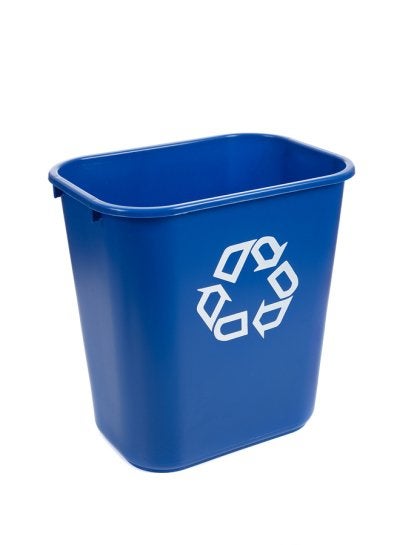
Ferrous waste comes from a variety of sources.
Ferrous waste can be obtained from many of the most common objects and items that we use every day. Among the most common sources of ferrous scrap metals include old automobiles. Along with junk cars, ferrous waste also comes from household appliances, steel structural beams, and old transportation equipment.
Ferrous waste is among the most commonly recycled materials.
In fact, ferrous waste makes up the bulk of all of the various types of materials that are recycled in the United States. In a single year, ferrous waste recycling facilities process up to 72 million metric tons of iron and steel. Due to its renewable and reusable properties, ferrous scrap is a valuable part of the recycling industry.
Ferrous waste must be processed at a dedicated facility.
If you have extra scrap metal laying around your home or commercial property, you will need to bring your items to a facility that has the equipment required to process these types of materials. In order to process ferrous waste, a facility needs to put the raw materials into a powerful shredder. Once the iron or steel has been shredded, it can be melted down in order to create brand new products. Your recycling facility may also sort different types of ferrous waste into categories before it is shredded.
-
Why Having Enough Trash Cans Matters for Your Business
When you set up a waste management plan for your business, you will need to make sure that your facilities are equipped with enough trash cans. While trash cans may seem like basic office supplies, they are actually very important to ensuring proper waste disposal for your business. A company that offers waste disposal services and trash pickup near Atlanta will be able to help you calculate the correct number of trash cans for your office space.
By providing your workers with enough trash cans, you will be able to ensure that your trash removal efforts are being supported, throughout the workday. When your employees are provided with conveniently placed trash cans, they will be able to easily toss out their waste. However, if you place too many trash cans around your business, you may end up crowding your space. A team of waste management experts can help you to make sure that your business is supplied with the correct number of trash cans.
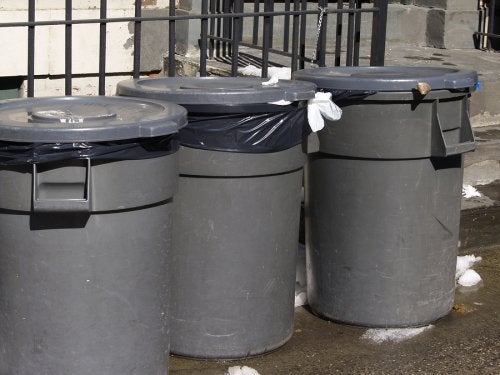
RECENT POSTS
categories
- Uncategorized
- Waste Management Atlanta
- Waste Disposal and Recycling
- Hazardous Waste Disposal
- Chemical waste removal
- solid waste removal
- R3 Program
- Sustainable Organizations
- Sustainable Waste Removal
- Commercial Waste Removal
- Materials Management Program
- Dumpster Rental
- Roll Off Dumpsters
- Construction Site Waste Removal
- Sustainability
- Recycling in Atlanta
- Industrial Recycling
- Industrial Waste Removal Services
- Southern Waste & Recycling
- Waste Removal Atlanta
- Waste Specialists
- Atlanta
- Infographic
- Front Load Dumpsters
- Rear Load Dumpsters
- Reusable Electronics
- Dump Truck Atlanta
- Recyclable Electronics
- Trash Compactors
- Recycling
- Recycling Program
- Office Recycling
- Metal Recycle
- Electronic Waste
